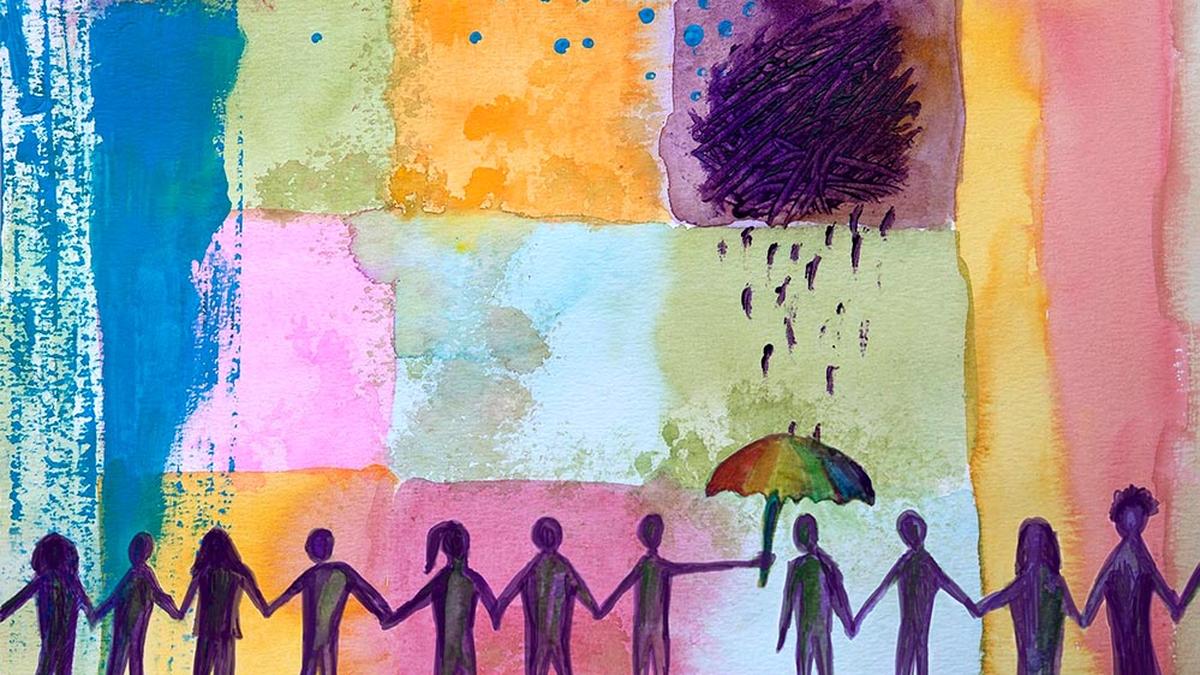Science
Experts Call for Enhanced Support for Adults with Disabilities in India

The transition to adulthood often marks a stark shift in mental health and disability support in India, with many services ending when individuals turn 18. Experts are emphasizing the urgent need for a robust framework that prioritizes adult-focused support systems, grounded in the principles of disability justice.
Currently, many young people with disabilities encounter a significant gap in services when they age out of child support programs. This gap leaves them without access to necessary mental health resources and other essential services that cater specifically to adults. According to recent discussions among mental health professionals, this lack of continuity is detrimental and can exacerbate existing challenges faced by individuals with disabilities.
Urgent Need for Systemic Change
Experts stress that the existing support systems are not adequately designed to meet the needs of adults with disabilities. The move from child to adult services often proves disorienting and isolating. As Dr. Shalini Rao, a leading mental health advocate, pointed out, “The abrupt discontinuation of support at age 18 can lead to increased mental health issues, affecting individuals’ ability to thrive in society.”
The absence of a dedicated framework for adult support results in many individuals falling through the cracks. Advocacy groups have been vocal about the need for comprehensive policies that ensure a seamless transition. This includes not only mental health services but also vocational training, rehabilitation programs, and community integration initiatives.
In 2022, the National Institute of Mental Health and Neurosciences (NIMHANS) published data revealing that approximately 70% of adults with disabilities in India do not receive adequate mental health support post-18. This statistic underscores the urgency for reform in adult service provision.
Framework Grounded in Disability Justice
The call for a new framework is rooted in the principles of disability justice, which advocate for equitable access to resources and support systems. Experts argue that any new policies should prioritize the rights and needs of individuals with disabilities, ensuring their voices are heard in the decision-making processes.
Effective solutions could include the establishment of dedicated adult support services that bridge the gap left after childhood programs. This might involve expanding existing services or creating new initiatives tailored to the specific needs of adults with disabilities.
Moreover, integrating mental health services with social and vocational support can enhance the overall well-being of these individuals. As noted by Dr. Arjun Verma, a social policy researcher, “A holistic approach that combines various aspects of support is essential for fostering independence and improving quality of life.”
The Indian government has an opportunity to lead in this area by collaborating with experts, advocacy groups, and the community to develop a comprehensive policy framework. Such initiatives could pave the way for a more inclusive society, where individuals with disabilities can access the support they need throughout their lives.
In conclusion, addressing the gap in adult-focused mental health and disability support is not just a policy issue; it’s a matter of human rights. By prioritizing the establishment of a cohesive framework, India can work towards ensuring that every individual, regardless of their circumstances, has the opportunity to thrive and contribute to society.
-

 World5 months ago
World5 months agoSBI Announces QIP Floor Price at ₹811.05 Per Share
-

 Lifestyle5 months ago
Lifestyle5 months agoCept Unveils ₹3.1 Crore Urban Mobility Plan for Sustainable Growth
-

 Science4 months ago
Science4 months agoNew Blood Group Discovered in South Indian Woman at Rotary Centre
-

 World5 months ago
World5 months agoTorrential Rains Cause Flash Flooding in New York and New Jersey
-

 Top Stories5 months ago
Top Stories5 months agoKonkani Cultural Organisation to Host Pearl Jubilee in Abu Dhabi
-

 Sports4 months ago
Sports4 months agoBroad Advocates for Bowling Change Ahead of Final Test Against India
-

 Science5 months ago
Science5 months agoNothing Headphone 1 Review: A Bold Contender in Audio Design
-

 Top Stories5 months ago
Top Stories5 months agoAir India Crash Investigation Highlights Boeing Fuel Switch Concerns
-

 Business5 months ago
Business5 months agoIndian Stock Market Rebounds: Sensex and Nifty Rise After Four-Day Decline
-

 Sports4 months ago
Sports4 months agoCristian Totti Retires at 19: Pressure of Fame Takes Toll
-

 Politics5 months ago
Politics5 months agoAbandoned Doberman Finds New Home After Journey to Prague
-

 Top Stories5 months ago
Top Stories5 months agoPatna Bank Manager Abhishek Varun Found Dead in Well









